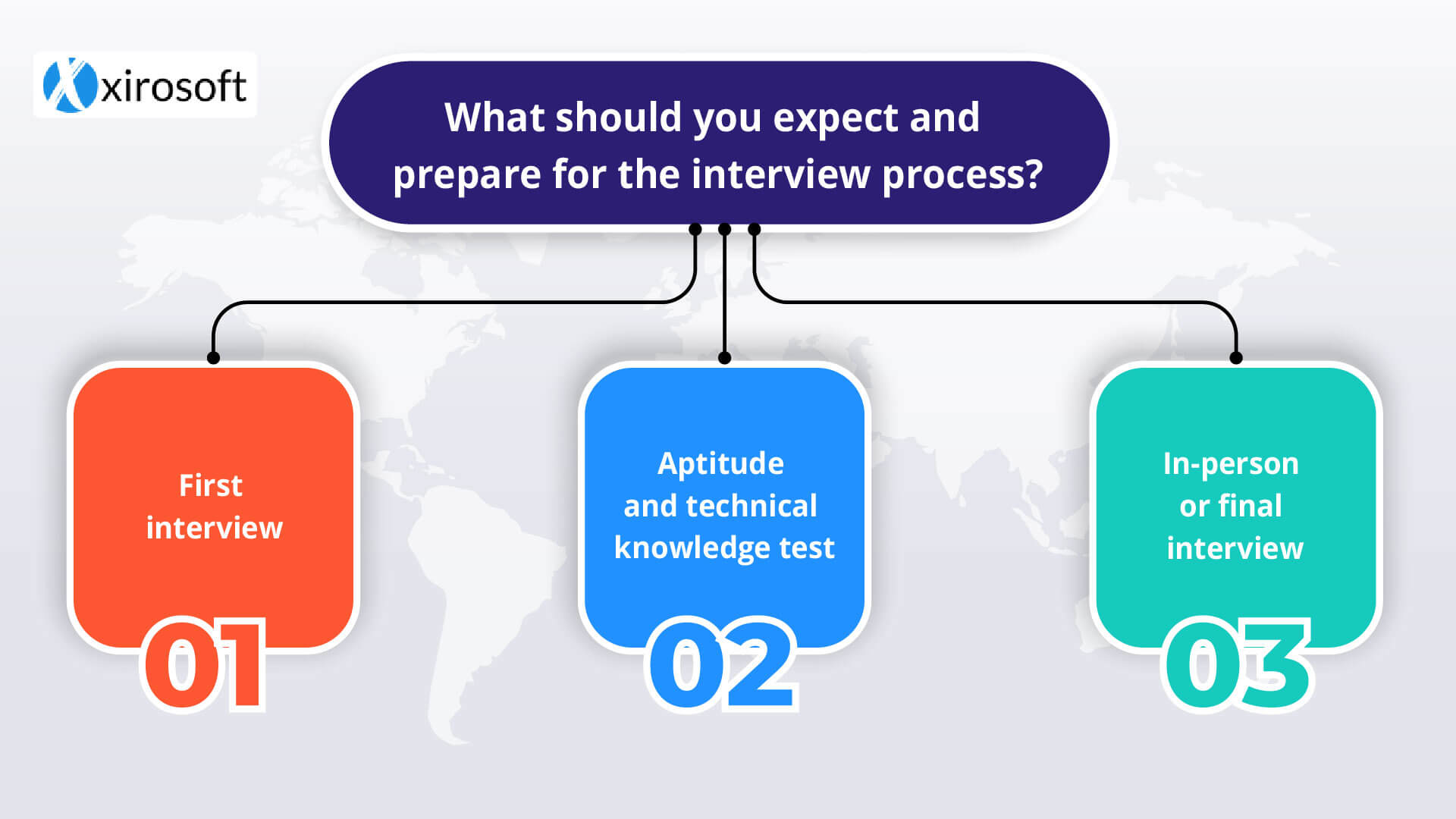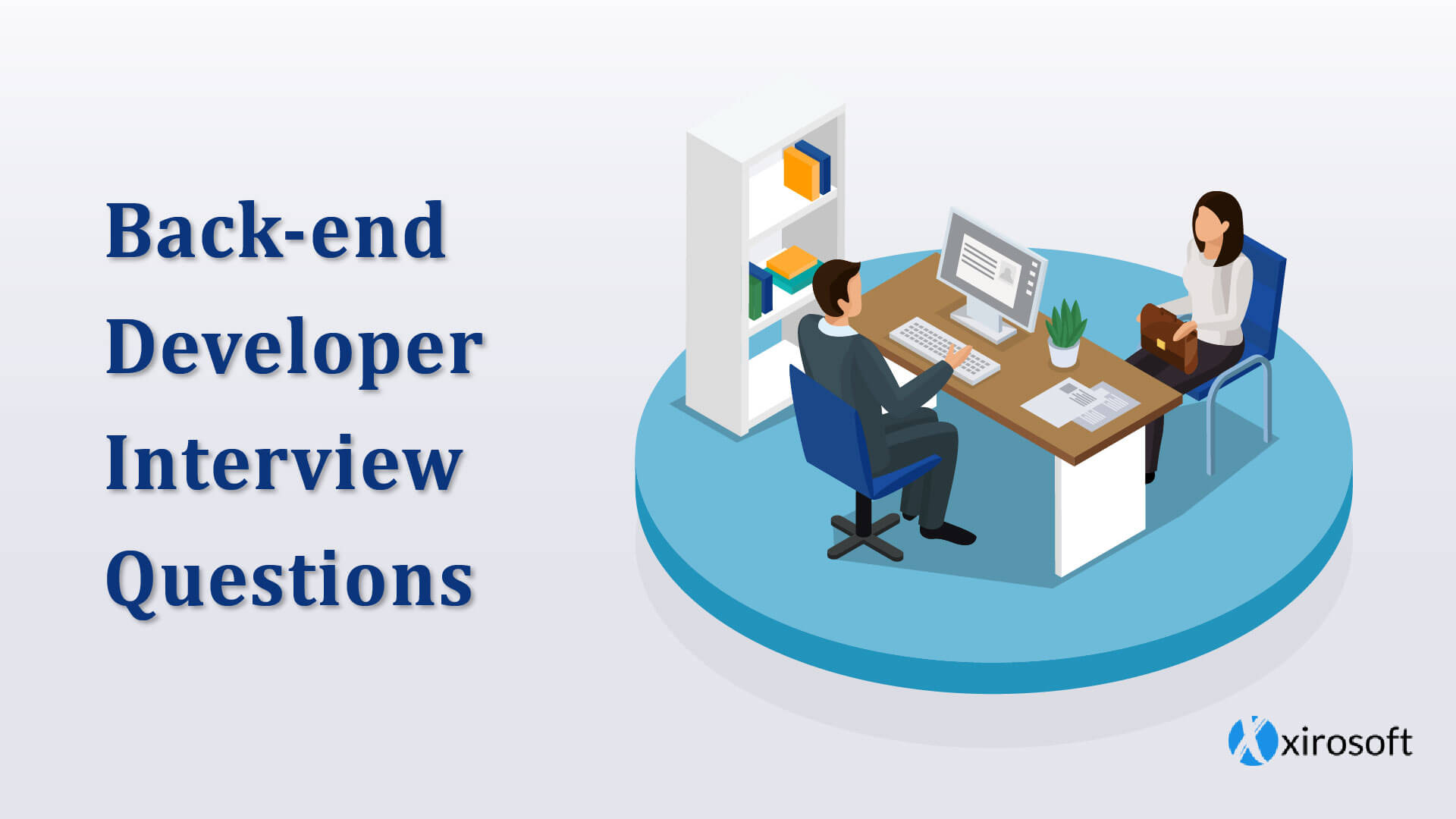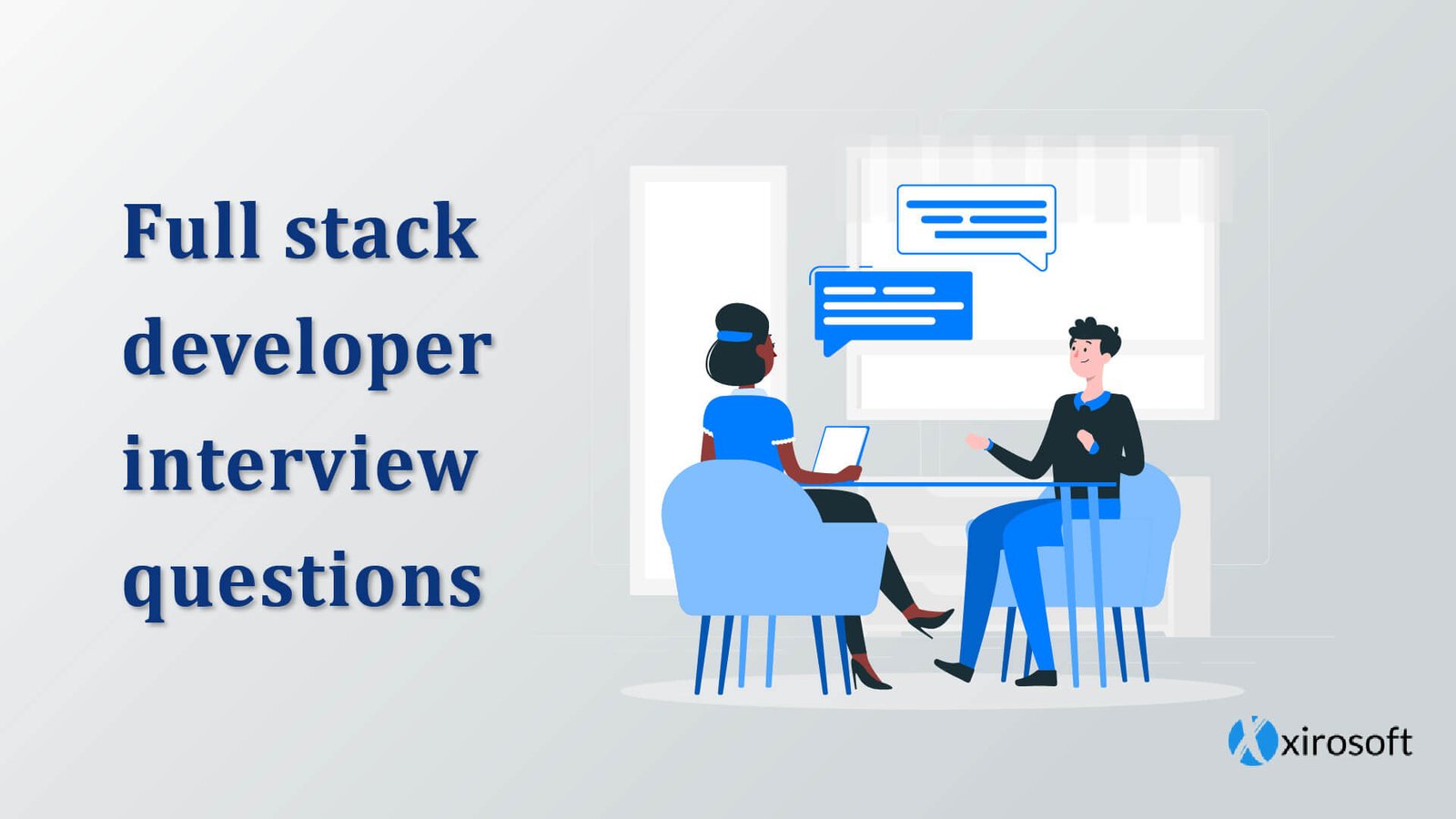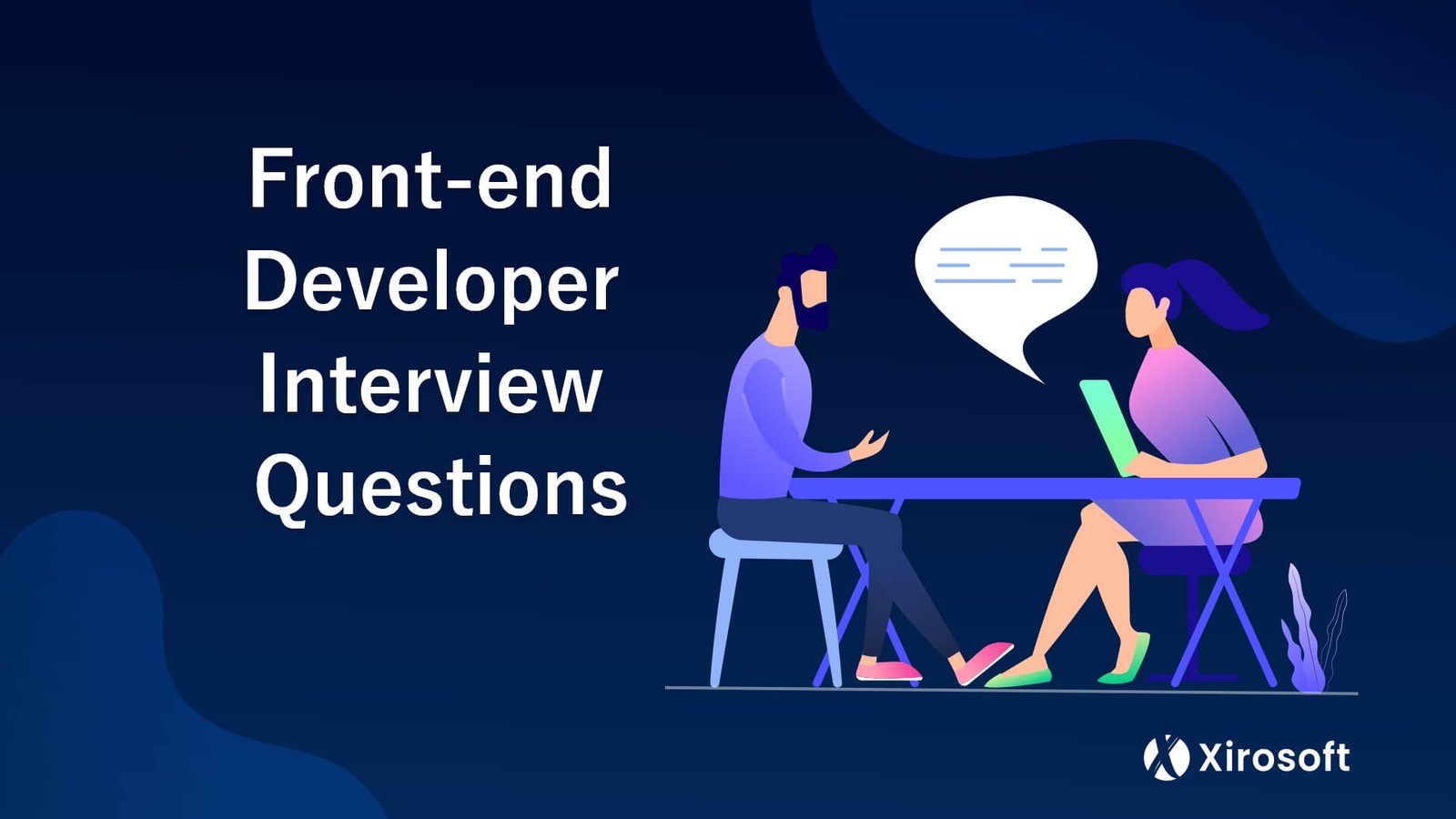As one of the top-ranking careers worldwide, web developer interview questions are getting more challenging by the day. If you are a web developer whose job interview is coming up soon, you’re in just the right place because we will walk you through a series of common questions in most web developer interviews.
What should you expect and prepare for the interview process?

Before moving onto the interview questions, to make sure everyone understands what to expect and prepare for, let’s look at what the usual interview process is like.
Stage 1: First interview
Once you apply with your CV and portfolio, the authorities in charge of the interview will reach back to you with interview details. Later, you have to be present for a first interview, which commonly happens in-person, or via a video conference.
This phase of your interview is crucial because your interviewer will evaluate if you are worth proceeding to the next interview stage. So, make sure you leave a positive impression in the small amount of time you have been allotted.
Stage 2: Aptitude and technical knowledge test
Moving on to the next step, you will face an aptitude or technical knowledge test that is crucial to determine if you are fit to have a career in web development. Here they will ask you many technical questions that will help them understand your skills and if you are willing to work hard to develop your skills further.
They may also ask you to demonstrate a task or complete a test project to evaluate your problem-solving abilities within a certain time. Moreover, this is also the part of your interview where your questions may vary according to the type of web developer.
Stage 3: In-person or final interview
If you pass the first two stages of your interview, you will be called for a final interview that usually happens in person. But if that is not possible, you are sure to be asked to join a video conference because the face-to-face conversation is important at that point.
You will most likely be asked your salary expectations in this interview and also your availability. In this situation, you will most likely be one of a few chosen candidates, and it’ll be the survival of the fittest scenario.
But no matter what, the whole process will add to your experience, which in turn will fuel your confidence for any other interviews you may try out next.
14 questions that you may face in a web developer interview
Now that we have discussed the interview phases, we will dive into the details for common questions that you may be asked during the first and second stages of your interview. The questions asked in the last step can vary greatly, but as we gave you a bit of an idea about it in the previous section, let’s move on without wasting any more time.
Part 1: Questions for the first interview
As we said before, this stage of the interview will determine the interviewer’s impression of you. So, it is crucial that you understand the motive behind a question before going on to answer their queries.
1. What is a project you’re proud of?
Most interviewers wish to start up an interview by asking a question that may ease you up and give you the confidence to answer. That is exactly what the aim of this question is.
So, make sure you have a vivid picture of a project that you think is a good achievement on your part. Also, your answer may give the interviewer an idea about what stage of the learning curve you are in.
2. What is a project you’re disappointed about?
Once you have talked about the project you are proud of, it is possible that you will be asked about a project that you are disappointed about. The motive behind this question is to understand your introspective abilities.
Your answer may also indicate that you are open to critical feedback and rectification and that you will learn from your mistakes to improve your skills.
3. What are your work and testing process and preferred environment?
While it makes little to no difference, knowing more about your work and testing process and the environment you prefer to work with helps the employer understand your ability to adapt to different work situations and your versatility to work with different tools and systems.
4. Tell me your opinion on some recent developments in this field.
This question is to evaluate your knack for skill development. It goes to say how up-to-date you are and how you may gradually improve your skills by keeping some time aside for self-improvement activities. So, it is best if you take a look at some recent developments in the field before going to the interview.
5. Why do you want to work here?
Another basic question that most interviewers ask can be, “why do you want to work here.” While many may end up answering in a generic way saying that the company can give them better career opportunities, and the scope to learn more, etc.
It is best if you research about the company beforehand and tell them actual aspects of the company that caught your attention. This will show them that you are indeed going to work with dedication and commitment.
Read More: How To Design A Landing Page Pro Tips
Part 2: Questions for aptitude or technical knowledge test
Congrats if you have passed the first step because that is where you will find a larger competition. But now that you will be assessed with an aptitude test, you must keep in mind that the competition will get tougher. For your ease of understanding and reading, we will be breaking this section into three categories :
- Front-end developer interview questions
- Backend developer interview questions
- Full-stack developer interview questions
That said, without further delay, let’s look at the questions that you may be asked at this particular level.
Front-end developer interview questions
1.
Explain the importance of the <Doctype! Html> tag?
The <Doctype! Html> is a declaration tag that tells a browser the version of Html that a code is written in. It is crucial because it allows a browser to interpret your code into the correct content that you want. It should always be written as the very first thing of any Html-based code so that your browser knows which rules to adhere to while decoding.
2. What is the difference between cookies and local storage?
Cookies allow a website to store data on a user’s browser for a definite or fixed amount of time. Local storage, on the other hand, stores data indefinitely until the user manually clears it.
3. Choose between CSS and Js animations and explain your choice.
This is a trick question. So it is best to say that you chose both CSS and Js animations while working because they both have their own significance. CSS animations are best suitable for simple transitions.
And when UI elements are contained on their own, Js animations are used for more advanced projects that require a superior level of control.
Backend developer interview questions

1. What is the difference between an acceptance test and a functional test?
The acceptance test is something that is used to check the validity or the relevancy of your product. On the other hand, a functional test refers to checking that every feature is working smoothly without any issues.
2. What do you need to create the basic architecture of a web API?
There are four basic things needed to create the basic architecture of a web API. They are HTTP for communication between user and server, XML/JSON as data interchange formats, and easy URI as the address for identifying your resources correctly, and stateless communication for isolating HTTP requests.
3. What is REST?
Representational State Transfer (REST) is a web-standards-based architecture that can be used to take advantage of existing protocols in web services.
Full-stack developer interview questions

1. How can you reduce the load time of a web app?
There are many ways to reduce the loading time, such as enabling browser caching, images optimization, minimizing HTTP requests, minifying CSS, Js, and Html, and reducing redirects.
2. What is CORS?
CORS (cross-origin resource sharing) is an HTTP header-based mechanism that can make requests from one browser to another, allowing a user to perform more versatile tasks.
3. What is Long Polling?
Long Polling is a web development pattern that can be used to request information from the server. The advantage of using long-polling is that it does not send an empty resource to any user. Rather it waits for the information to be available to present it to the user, which is a huge plus in recent times.
What to do after the interview?
So, that was all about the web developer interview questions with the best possible answers. Once you are done with the interview, even if you get the post or not, you have to keep improving your skills. There are tons of resources online to help you further develop your skills and keep updating your portfolio.
Hope for the best.







